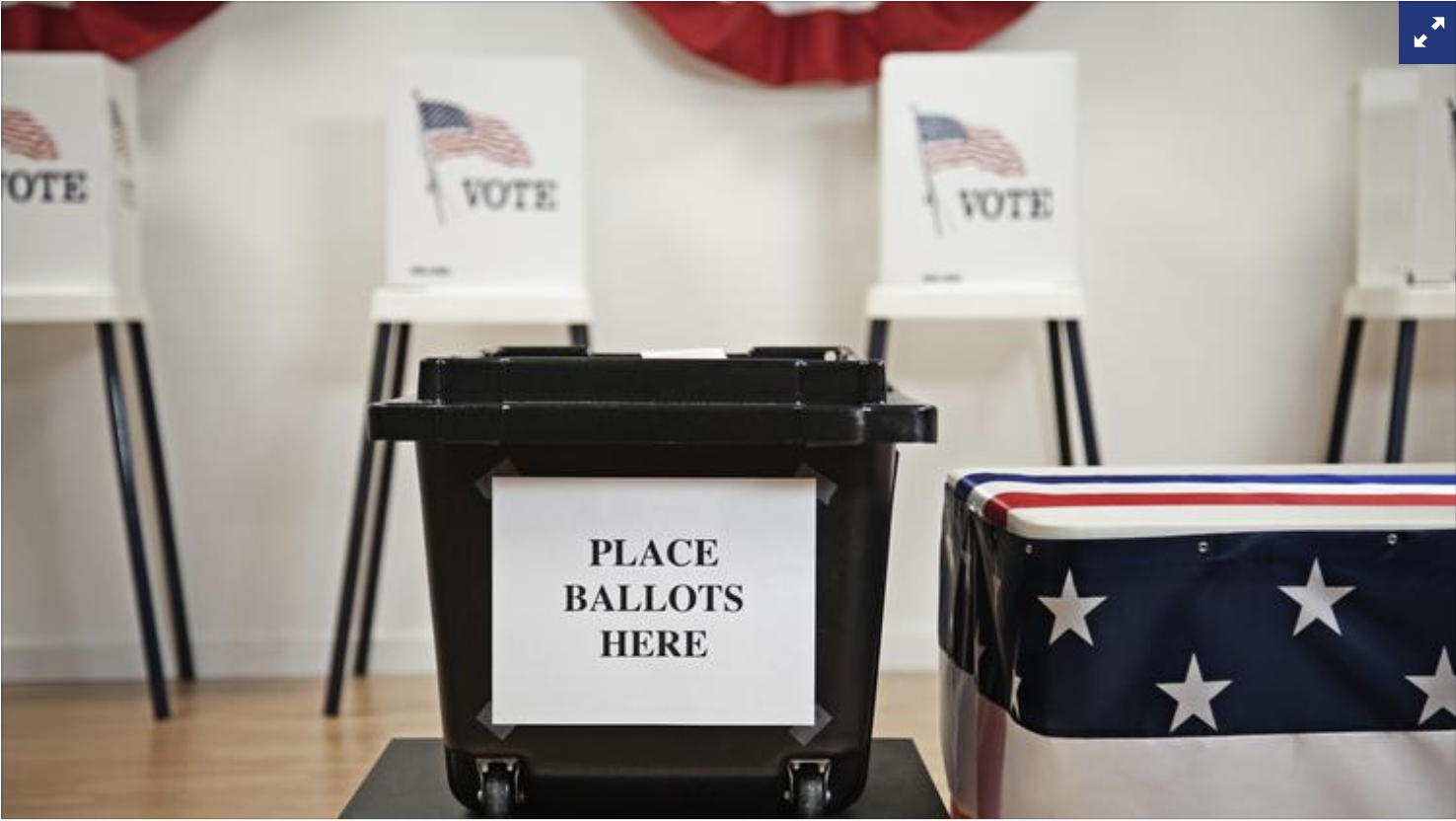Opinion: GCDD's review of Senate Bill 202 and its impact on Georgia's disability vote
 GCDD has alerted advocates to, and publicly testified against, many concerning voting proposals, such as ending no-excuse absentee voting, prohibiting drop boxes and requiring a state-issued ID number to receive an absentee ballot.The Georgia Council on Developmental Disabilities (GCDD) introduced a legislative agenda that focused on “disability in all policy” for the first time during Georgia’s 2020 legislative session. This concept is based on the idea that Georgia will be best served by ensuring that people with disabilities and their families are considered in all areas of legislation.
GCDD has alerted advocates to, and publicly testified against, many concerning voting proposals, such as ending no-excuse absentee voting, prohibiting drop boxes and requiring a state-issued ID number to receive an absentee ballot.The Georgia Council on Developmental Disabilities (GCDD) introduced a legislative agenda that focused on “disability in all policy” for the first time during Georgia’s 2020 legislative session. This concept is based on the idea that Georgia will be best served by ensuring that people with disabilities and their families are considered in all areas of legislation.
To this end, GCDD actively monitored, analyzed and advocated around voting legislation throughout the 2021 legislative session. We have ongoing concerns and remain committed to keeping the community up to date on the most recent developments related to voting rights.
Senate Bill 202, a 90-plus page voting bill, was passed out of the Georgia General Assembly and signed into law by Governor Kemp on March 25, 2021. Throughout this session, GCDD has alerted advocates to, and publicly testified against, many concerning voting proposals, such as ending no-excuse absentee voting, prohibiting drop boxes and requiring a state-issued ID number to receive an absentee ballot. Throughout the session, the proposals were removed, modified, and placed in other bills, creating an ever-changing landscape of high stakes for our democracy.
Below are the four concerns GCDD highlighted earlier this session, as well as the current status of those concerns in relation to Senate Bill 202:
1. Absentee ballot excuse requirement
GCDD was concerned about the early proposal to end no-excuse absentee voting, especially because almost 75% of voters with disabilities voted via absentee ballot in the 2020 election.
Senate Bill 202 does not end no-excuse absentee voting. This means that any voter in Georgia is still eligible to vote via an absentee ballot. This practice is also referred to as voting by mail.
2. Voter ID requirement
Early proposals required a person to submit their driver’s license number or state-issued ID number on their absentee ballot application. GCDD testified against this proposal as many people with disabilities do not have a driver’s license, and voters with disabilities are approximately two times less likely to have a state-issued ID compared to voters without disabilities. The voter ID requirement was modified so that a person who does not have a driver’s license or state-issued ID can now submit a copy of the following to verify their identity: a utility bill, bank statement, government check, paycheck or other government document that shows their name and address.
This modification is preferable to the original proposal as it may assist those who do not have a state-issued ID in voting absentee, but the additional requirement will still present barriers to voting absentee as a person will now have to make a copy of a document and submit that copy with their application, which is an extra step that was not present before.
3. Drop box limitations
The use of drop boxes as a method to return one’s absentee ballot will be significantly limited under Senate Bill 202. The bill requires that drop boxes only be located inside the office of the board of registrars or absentee ballot clerks or located inside sites for advanced voting. Access to the drop boxes will now only be available during the hours in which advanced voting is taking place.
4. Limits to early voting
Senate Bill 202 shortens the time frame in which one can request an absentee ballot from the original 180 days prior to the election to only 78 days prior. It also sets a deadline to request an absentee ballot at 11 days prior to the election.
Senate Bill 202 does not limit the period of early in-person voting for general elections, and it does expand weekend voting before general elections by requiring two early-voting Saturdays statewide. However, early voting before runoff elections will be shortened to just one week before election day.
The above are the primary changes in Senate Bill 202 that we believe will have an impact on the ability of people with disabilities to vote; however, there are additional changes to Georgia’s voting system, including prohibiting line warming (i.e,. giving out food and water to voters waiting in line to vote), providing more statewide control over local election systems, disqualifying provisional ballots cast in the wrong precincts, and others. We anticipate that this legislation will be challenged in the court system, and we will continue to monitor and provide updates as they are available.
GCDD stands firm in its commitment to ensure Georgians with disabilities are provided barrier-free opportunities to cast their ballots, and we will continue to work to support Georgians across the state to participate and make their voices heard through their vote in all future elections.
The Georgia Council on Developmental Disabilities (GCDD) is a state leader in advocating alongside people with developmental disabilities. We advance social change, public policy and innovative practices that increase opportunities for individuals with developmental disabilities and their families to thrive where they live, learn, work, play and worship.
The original article ran in the Atlanta Business Chronicle and in the World News Network on July 1, 2021.
